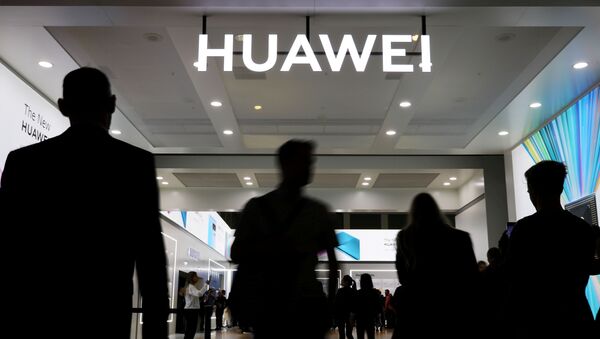The US Federal Communications Commission (FCC) has designated Chinese tech firms Huawei and ZTE as national security threats to the United States, commission chairman Ajit Pai announced Tuesday.
"The FCC has designated Huawei and ZTE as companies posing a national security threat to the United States," Pai stated in a tweet. "As a result, telecom companies cannot use money from our $8.3 billion Universal Service Fund on equipment or services produced or provided by these suppliers," he added.
BREAKING NEWS: The @FCC has designated #Huawei and #ZTE as companies posing a national security threat to the United States. As a result, telecom companies cannot use money from our $8.3B Universal Service Fund on equipment or services produced or provided by these suppliers. 1/5 pic.twitter.com/dH6QK4jbd4
— Ajit Pai (@AjitPaiFCC) June 30, 2020
Pai followed up the tweet with a Chinese-language version to make sure Beijing got the message.
He added that the decision was made accounting for "input from Congress, the Executive Branch, the intelligence community, allies, and communications service providers," and that that the designation was supported on the basis of the "overwhelming weight of evidence." He did not go into detail regarding what this evidence was.
"Both Huawei and ZTE have close ties to the Chinese Communist Party and China's military apparatus. And both companies are broadly subject to Chinese law, which obligates them to cooperate with the country's intelligence services. With this decision, we are sending a clear message: the US Government, and this FCC in particular, cannot and will not allow the Chinese Communist Party to exploit vulnerabilities in US communications networks and compromise our critical communications infrastructure," Pai said.
The United States has previously accused Huawei, ZTE, and their subsidiaries and affiliates of collaborating with Chinese intelligence services and of using equipment for illegal surveillance purposes. Separately, US officials have claimed that the Chinese high tech companies have engaged in illegal business practices including technology theft. The tech firms have refuted these claims as unjustified, evidence-free and politically motivated, and accused Washington of seeking to limit free market competition.
In addition to the restrictions in the US itself, Washington has sought to pressure its European allies to reject Chinese high-tech products, including Huawei's bid to become a major global supplier of next-gen 5G internet infrastructure.



